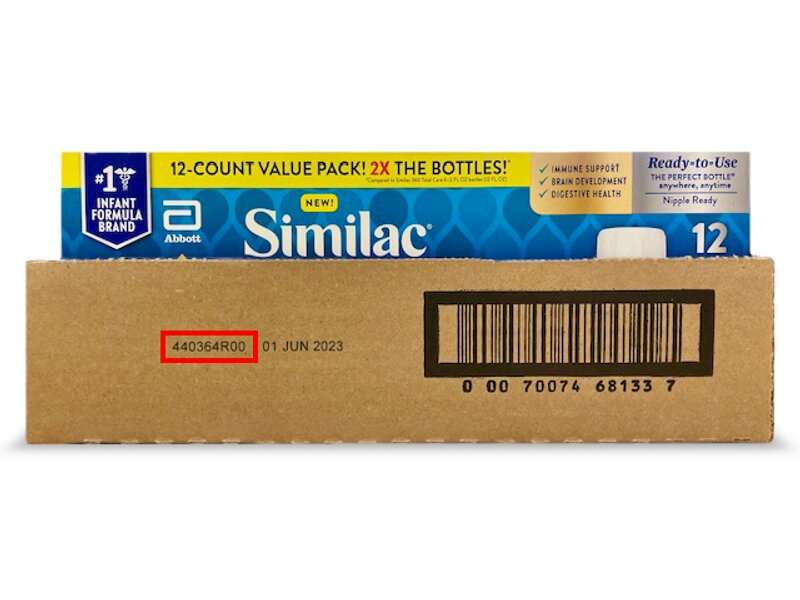
Abbott Inc. has announced that it is again recalling some of its infant formula products, though the company said this latest recall is small and should not significantly impact nationwide supply.
This recall was triggered by the fact that some bottles may have defective caps that could lead to the product spoiling, which could lead to diarrhea and vomiting if consumed.
“This recall equates to less than one day’s worth of the total number of ounces of infant formula fed in the U.S. and is not expected to impact the overall U.S. infant supply,” Abbott said in a statement released Friday.
The company is recalling specific 2-ounce bottles of Ready-to-Feed liquid products for infants and children made at its Ohio plant under the brands Similac Pro-Total ComfortTM, Similac 360 Total Care, Similac 360 Total Care Sensitive, Similac Special Care 24, Similac Stage 1, Similac NeoSure, Similac Water (sterilized) and Pedialyte Electrolyte Solution.
Consuming the product could cause vomiting and diarrhea, the Illinois-based company said.
Do not use any recalled formula, Abbott advised customers. Visit similacrecall.com to see a list of the lot numbers affected by the recall.
Most of the recalled products were sent to hospitals, doctors’ offices and retailers in the United States, including Puerto Rico. An additional lot was sent to Barbados, Bermuda, Colombia, the Dominican Republic, Haiti, Jamaica, St. Croix and St. Thomas. Two more lots were distributed to Canada, Curacao, Panama, and Trinidad and Tobago, the company said.
The company is continuing to produce the product on a different production line for hospitals and healthcare providers. It has also increased production at other plants. The formula is still for sale at retailers in other product sizes.
An Abbott plant was temporarily closed in February amid a major recall and a federal investigation of potential links to four bacterial infections in infants who had consumed formula made at that plant. Two of those children died. Violations found later by federal regulators at the company’s Michigan plant included bacterial contamination, a leaky roof and lax safety protocols.
Source: Read Full Article